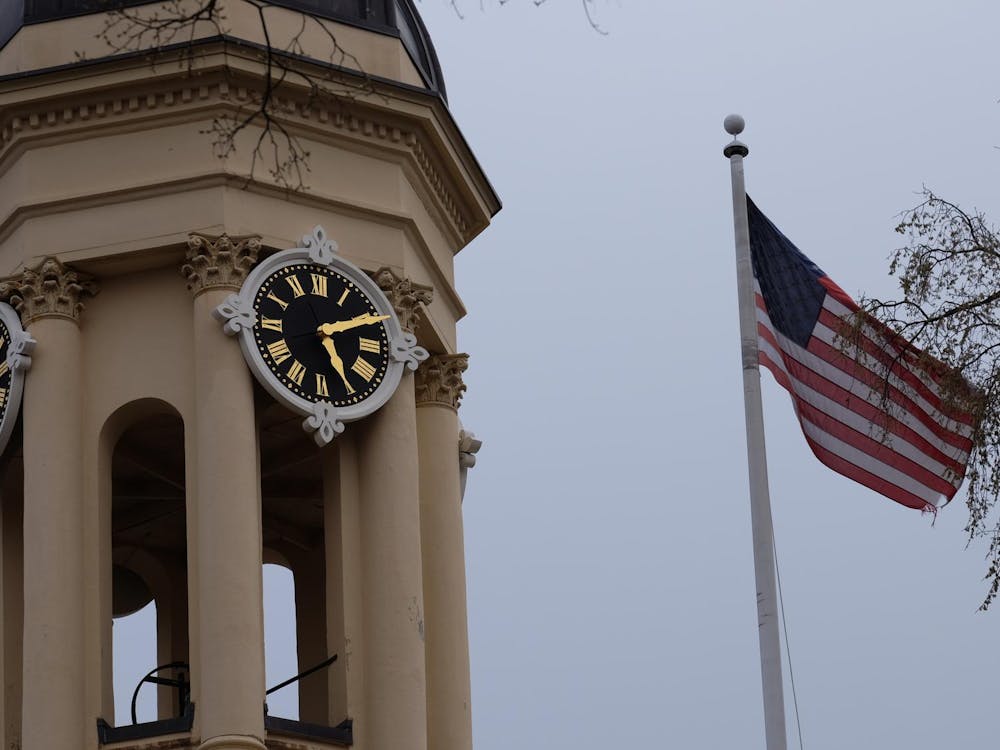I had nearly forgotten — but quickly remembered — a time when it seemed like the future was more imminent than usual, when everyday at 11:11 my peers tore through their backpacks in search of green objects, and when relatives took it upon themselves to evaluate the quality of institutions whose names they could not pronounce (“Bow-doo-een” was my favorite). This is the time when students memorize words like melodrama and histrionic, and perhaps because seniors are, say, distrait, they fail to realize that these words apply to their lives. While the incorporation of SAT words into everyday speech may have varying impact, getting into college has only one effect.
This is why many current high school juniors will celebrate the recent decision by the University of Virgina to reinstate the school’s early admission program after having suspended it in 2006. Harvard, too, is considering reinstating a very similar program. The question remains whether Princeton will stick to President Shirley Tilghman’s statement: “We believe that elimination of early admission programs can reduce some of the frenzy, complexity and inequity in [applying to college].” Tilghman continued, “We hope very much that our decision will encourage other colleges and universities to join in eliminating early admission programs.” But the fact of the matter is, they didn’t, and the few that did are reconsidering.
Choosing to do early decision at schools like the University of Pennsylvania, Dartmouth and Johns Hopkins is certainly attractive to students who might otherwise apply to and ultimately choose Princeton. Even nonbinding early action programs have the potential to rob us of future Princetonians because students sometimes grow attached to the schools that accept them early. If Harvard rescinds its 2006 decision, Princeton will be alone among its peers in not offering any early admission program.
This would be unfortunate, given that the addition of an early admission program could address our falling yield, which measures the percentage of accepted students who matriculate. Princeton’s yields for the classes of 2013 and 2014 were 58.3 percent and 56.9 percent, respectively. This represented a decline from the yields for the classes of 2010 and 2011 — 69.2 percent and 68.0 percent, respectively — the last two classes to have the early decision option. While it does not produce the guaranteed higher yield that early decision does, early action produces more probable yield. Some would argue that the University should not take yield into account, but the unfortunate reality is that yield plays into college ranking, which plays into prospective students’ decisions, and prospective students are the future of the University.
But certainly there was some logic in the decision to eliminate early decision. An article in the ‘Prince’ suggested that early decision’s critics “argued that it forced a premature decision onto applicants and their families.” However, given that early decision is in fact an option and not a requirement, to call it “prematurely forced” is a bit strong — after all, the decision to apply early comes only two months before regular application deadlines. Furthermore, the University of Virginia is now implementing an early action program rather than an early decision program to address this concern. If Princeton offered a single-choice early action program like Yale does, Princeton could both provide seniors with more options while also identifying students who are more likely to attend Princeton.
Having options is especially important to students who want to get the best possible financial aid packages. For this reason, an early action plan might be fairer than an early decision program. This way, disadvantaged students would have the option of applying to other schools and receiving a variety of financial aid packages. Additionally, there would be more incentive for the University to offer even more appealing packages. Finally, students accepted early could save on the cost of applying to safety schools. At $60 an application, these fees add up.
In line with this thinking, another argument against early admission programs is, as Tilghman put it, that early admission “advantages the advantaged.” It is true that advantaged students dominate the early applicant pool. A columnist in The Cavalier Daily, the student newspaper at the University of Virginia, pointed out that “to improve their chances of admission, many low-income students will forgo early admission to strengthen their SAT scores and GPAs during their fall semester senior year.” However, it seems to be the case that many, regardless of their advantage, can improve their SAT scores and GPAs during senior year. Furthermore, students who can afford SAT classes and college counselors also have an advantage in the regular admission process. Indeed there is a disparity between different groups of students applying to Princeton, but eliminating early admission does not address it adequately, if at all.
Another reason for the disparity could be that less-advantaged students do not have resources and information about early admission readily available, nor college guidance counselors prodding them to apply early. This can be rectified by an effort on Princeton’s part to reach out to less-advantaged students. While the admission office may be no substitute for an insistent college guidance counselor, advertising the early admission process to students who might not otherwise know about its advantages may be a decent solution.

Indeed, the early admission process is not perfect, but the same can be said for the admission process as a whole. We can tackle its imperfections by instituting early action and then working to advertise it. Disparities will remain in any process, but Princeton should still reap the benefits of early admission, as all its peers already do.
Monica Greco is a sophomore from Brooklyn, N.Y. She can be reached at mgreco@princeton.edu.








